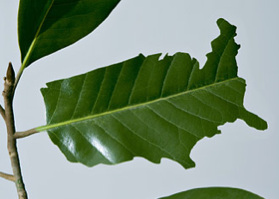Freedom AND Sustainability: How to Be Proud to Be an American
by Jake Giessman | December 28, 2012

I can’t seem to find it on YouTube, but I distinctly remember a mid-1980s car commercial in which country music star Lee Greenwood stands next to a truck and urges viewers to buy American. His hit “God Bless the USA” plays in the background, and my eight-year-old self can’t help but choke up every time.
“God Bless the USA” has climbed the charts several times since its 1984 debut, including during Operation Desert Storm, after the 9/11 attacks, and after the death of Osama bin Laden. It sparked bitter controversy this summer when a New York principal cut it from her school's graduation program, which, in turn, fueled support for Greenwood’s new book Does God Still Bless the USA? and media interest in a Utah man who performed the song 911 times in two days.
The song, it appears, is a bellwether for our national consciousness. But does it need to be updated for today's times?
At its release nearly three decades ago, we were building up to win the Cold War, facing a mounting economic challenge from Japan, and trying to make amends with our Vietnam veterans. We were ripe for a patriotic anthem. Religious themes aside, the song’s lyrics made a simple argument: Even through the hard times, we should all be proud patriots. Why? Because at least we know we’re free.
It made sense in 1984 to treat freedom as our be-all-end-all. After all, our history had been one of struggles for political, economic, and spiritual freedom: from our colonial refuge from persecution, to our war of independence, to our civil rights movements, to our lead role in the century-long world struggle to see whether monarchy would be replaced by authoritarianism or by democracy. No matter the collateral damage along the way, at least we knew that the U.S.A. stood for freedom.
Today, however, freedom is not enough to hang our hat on. Consensus is emerging that humankind is at real risk of freely choosing to pull the ecological rug out from under its own feet—particularly by altering the climatic systems on which we all depend—and that no small share of the blame falls on Americans. While I love my country, I don’t take pride in that.
I don’t think I’m alone, either. Google’s Ngram Viewer shows that, since 1972, the word “environment” has appeared in American English print more frequently than the word “freedom,” indicating our national preoccupation with a new moral domain, a new yardstick against which to measure ourselves. Of course, freedom is still a core American virtue—from the right’s defense of personal liberties to the left’s pro-democracy efforts—but it just isn’t enough anymore. Ecological stewardship has risen from pastoral ideal to urgent necessity.
In Greenwood’s original video for the song, he portrays a farmer who loses the family farm but remains steadfast in his patriotism. “If tomorrow all the things were gone, I’d worked for all my life…,” he sings. “I’d thank my lucky stars to be livin’ here, ‘cause the flag still stands for freedom and they can’t take that away.“ That may be enough for Greenwood’s farmer, but would he want his great grandchildren to sing the same thing as they struggle to adapt to resource depletion and climate disaster?
The farmer comes off as noble, but perhaps a bit of a dupe. Is freedom sufficient recompense for his disenfranchisement? Would the video still make sense if the farm had failed because of climate change? Sadly, it might. The fact is, our apotheosis of freedom sometimes allows us to ignore additional things that we need to stand for as a nation.
You know what would make me proud to be an American? To know that my country is a place where, for all our troubles and trials, (a) at least we know we’re free and (b) at least we know we are part of the climate solution, not part of the climate problem. To stand as the exemplar of both freedom and sustainability when both are threatened globally—that would be a real red-blooded American feat. It would draw upon all our characteristic ingenuity, diversity, and can-do work ethic. It would affirm our global role as model and steward. It would give us all cause for pride, and I think God would gladly bless us for it.
Jake Giessman is a teacher in Missouri and a guest blogger for New Dream.

